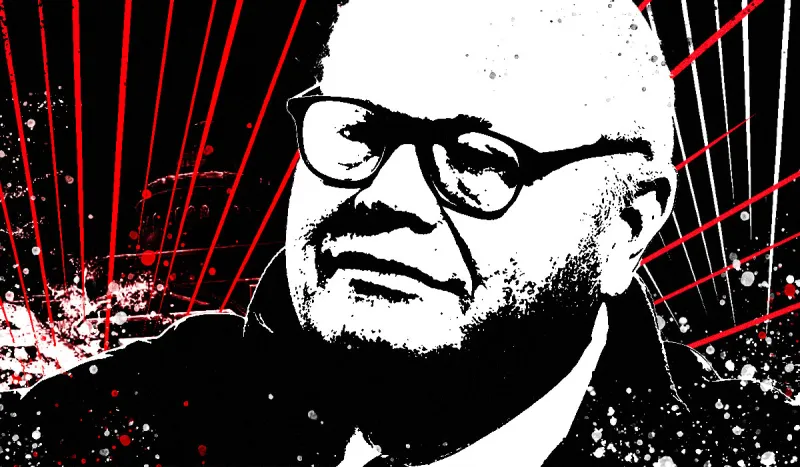
Illustration by II
From the new glass-walled offices of the University of Texas Investment Management Company, staff and visitors can glimpse the four-story building that houses the Teacher’s Retirement System of Texas — the building where, until last summer, Thomas Britton Harris IV reigned as chief investment officer.
The 60-year-old veteran investor surprised the industry last year when he left Texas’s $146 billion pension fund to take over Utimco, the organization responsible for investing the massive endowment funds of the University of Texas and Texas A&M.
His long tenure as CIO of Texas Teachers had been the apex of a decorated career in asset management, spanning Fortune 500 firms’ pensions and the world’s largest hedge fund.
Now — a year into his tenure as Utimco’s president, chief executive, and CIO — Britt Harris is making his mark once again. “We want to be one of the top-five endowments in the country in terms of our returns, our risk management, and our reputation,” he says. His boss, Utimco chair Jeffery D. Hildebrand, raises the bar even higher: “Our key objective, this year and every year, is to support Utimco in becoming the premiere endowment management organization in the country.”
It’s an ambitious goal.
Utimco’s offices are within a mile of Texas Teachers’ — “My car doesn’t know that I’ve changed employers,” Harris jokes — but the endowment operates in a different world from the public pension where Harris spent the previous decade of his career.
“I’d heard that endowments were in general strong performers, but they are even stronger than I had anticipated,” Harris admits. The investment chief describes endowments as the “most aggressive institutional alpha seekers” in operation, with the top-20 funds earning somewhere between 100 and 150 basis points of annual excess return compared with the rest of the peer universe.
Top endowments’ boards are stacked with high-achieving, experienced investment professionals — a marked difference from the “salt-of-the-earth” trustees elected at public pensions. (They “are wonderful, commonsense people, but don’t have the same amount of investment experience,” Harris explains diplomatically.)
Utimco’s board members, for instance, have backgrounds in hedge funds, venture capital, and public markets.
“In athletic terminology, you play to the level of your competition,” Harris says. “You want the strongest possible peer set because it does cause you to bring out your A game. When you’re playing against the best in the world and you realize it, you push yourself further.”
At Utimco, which manages $45 billion, Harris is doing just that. He demands that they always be “RIGHT” — an acronym for the core values of responsibility, integrity, great alignment, high performance, and transparency.
Harris briefly served as CEO of hedge fund firm Bridgewater Associates, and is a big believer in “well-defined and extreme” workplace cultures. “When you have a lot of people who fit into a strong, well-defined culture, your performance will benefit,” Harris says.
Part of the cultural shift at Utimco has entailed breaking down investment team silos and changing compensation to hold staff more accountable. The board has just approved a new pay structure that holds Utimco’s returns against those of the strongest-performing endowments, in addition to using traditional benchmark-based performance evaluations. The CIO believes that tracking performance against such a competitive peer group will “drive us to even higher levels of performance.”
But the fund Harris inherited has been distinctly middle-of-the-pack.
Utimco’s permanent university fund has returned 6.08 percent over the ten years ending in March 2018, about average for the Wilshire Trust peer universe for that time period. However, performance is improving: Utimco’s three-year return of 7.55 percent ranks in the top quartile, and the one-year performance of 13.15 percent is a top-decile return. For the past two quarters, Utimco was the best performer in its peer group.
“We want to be a performance-based organization, and our compensation should be based fairly on the value-add that we produce against our peers and against our passive benchmarks and relative to our code of conduct and cultural values,” Harris explains.
When Harris joined Utimco, his top priority was to attract and retain the “collaborative world-class investment professionals who are required to survive and win” in the “amazingly competitive” world of endowments. “Our goal is to be the preferred employer in the Southwest,” he says.
The endowment manager has in the last year hired deputy CIO Rich Hall and chief of staff Ken Standley — who both worked for Harris at Texas Teachers — as well as managing director Scott Slayton. Slayton had spent more than a decade at Morgan Stanley before moving to Tudor Investment Corp. and, most recently, Jamison Capital Partners. On the retention side, Harris says Utimco has been successful, with no key staff departures due to the changes in leadership and strategy.
“My assessment of the group was that it’s a very highly talented group of people who are very dedicated, very professional, and really know what they’re doing,” Harris says. “They just needed to operate with a stronger culture, with improved authority and accountability, and with a better strategic asset allocation plan.”
The new allocation plan, according to Harris, centers not on traditional diversification, but rather on the three economic regimes comprised by a market cycle. As Utimco defines them, they are stable value, global equity, and real return.
The stable value regime is characterized by falling growth and falling inflation. It’s a recessionary period when assets like fixed-income and absolute-return funds are expected to outperform equities.
During the so-called global equity regime, markets show healthy growth and mild inflation. Harris says public equities return an average of 15 percent annually during these periods, and private equity does well, too. “It’s a Goldilocks or nirvana world,” he explains.
The last regime — real return — occurs during overheated growth and inflation. This market environment, Harris says, is best suited to assets like natural resources, real estate, and commodities.
According to Utimco, the global equity regime is in place about 68 percent of the time, with the economy veering into real return 17 percent of the time and into stable value 15 percent of the time.
The new strategic asset allocation plan divides up the portfolio accordingly, targeting higher allocations to public and private equities while still building up protection against recessionary conditions. The portfolio is also moving away from directional hedge funds in favor of those better suited to the stable value regime, and dialing back on natural resources to reduce the endowment’s reliance on the sector. The $21.5 billion permanent university fund — the largest asset pool Utimco manages — is funded primarily by mineral rights to oil-producing land in the Permian Basin.
“Part of the problem that the world has right now is that there’s really nowhere to go for reasonable returns,” Harris says. “So what you do is you try to get as close to your neutral allocation as you can, and you try to make sure that you have built up enough sources of liquidity so that when the correction does come, you have the financial wherewithal to take advantage of that circumstance.”
Although nobody knows when the next bear market will occur, Harris expects it to be part of the next recession, which he says market consensus has pegged to 2020. For now, Utimco isn’t picking up bear market signals, and Harris anticipates moderate returns for the near term.
In the meantime, he’s focused on getting the best value possible from Utimco’s asset managers, and that includes enforcing the 1-or-30 hedge fund fee model developed at Texas Teachers. About 60 percent of Utimco’s hedge fund managers have moved to the new fee structure, which promises hedge fund managers either a 1 percent management fee or a 30 percent performance fee, depending on their returns.
The remaining 40 percent have been allowed to keep their existing arrangements because they have “performed at very high levels,” Harris says. These funds have been put on notice that if their returns deteriorate, they will be expected to make their fees more “fair, just, and sustainable.”
The CIO notes that “our belief is that with returns being lower going forward and cash rates being higher, hedge funds should be able to perform better — but the capital providers should retain at least 70 percent of the gross return.”
Under Harris, Utimco is also aiming to develop strategic partnerships with asset managers akin to those forged at Texas Teachers. The “right type” of partnership, according to Harris, will allow for customized products and services, operate on a global basis, and provide proprietary research.
“If we can fashion a proprietary relationship with a firm that takes advantage of our scale and our time frame and our risk parameters, then our returns improve and our ability to get information from the markets improves and the entire portfolio benefits,” he says.
Ultimately, the better Utimco performs, the more funding it can provide for the universities and health organizations it serves — a mission that is front-of-mind for Harris, his staff, and his boss. The CIO is a strong believer in eradicating poverty through education, and says the university class he teaches, Titans of Investing, is the “one thing that may actually make my life significant” beyond his family and friends.
“At this phase in my life, I am very cognizant of wanting to work for a strong purpose,” Harris says. “I believe in the purpose of this organization and think it’s absolutely essential that we maximize our long-term results — and I think I can be helpful with that.”
His help was no longer needed at Texas Teachers, Harris had concluded by the end of his run there. But he wasn’t ready to ride off into the sunset just yet. Utimco represented one last opportunity for Harris to “do something special for the world.” So he saddled up.
“It’s a chance to have one more rodeo with a very fine group of people,” he says.





